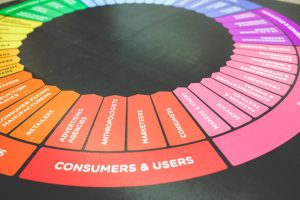TechInAfrica – Over the last 4 years, AI usage had grown at 270% and tripled in the last year alone, as this year’s survey by Gartner suggests. The growth could be attributed to the current data that demonstrate the real value and benefits of these tools. Many businesses are therefore jumping on this bandwagon, touting the digital resources as necessary tools to thrive in today’s highly-competitive market. A study by Deloitte shows how 83% of early AI users achieved either substantial or moderate economic benefits. Though it’s an exciting reveal, can entrepreneurs maximize AI and machine learning (ML) potential to benefit and support startups to smaller companies?
Lead Generation and Sales
A report by Harvard Business Review shows AI-driven companies gained over 50% of increased leads in their sales and 60% of reduced call time, with 40% to 60% cost reductions. Indeed, AI-driven lead intelligence software system is capable of delivering significant value for any business scales, and there are plenty of options for small business to cultivate these advantages. One of the known lead generation resources that deliver a full range of AI marketing and sales tools is OptinMonster. Its price is intended for small business, while SalesForce has specific products and offers excellent AI customer relationship management (CRM), with an affordable price. By using these resources, expect to personalize your engagement, anticipate what might be needed, and lastly, improving your lead quality.

Data Collection and Analysis
Small companies can receive critical decision-making information as to their larger counterparts with swift innovations in AI data collection and analysis. IBM Cognos serves as the best example at this point. It’s one of the most comprehensive data analytics AI systems on the market, with a user-structured dashboard that gives you visual representations and practical reports based on your data.
The intuitive dashboards provide a variety of options and thus, you can view your data by date, geographic location, product line, and other choices. Your data is protected, and reports creation and their distribution are easy. The pricing varies for different levels of organizations, ranging from small business to global enterprises. To garnered a complete view of the marketplace business and opportunities, these tools organize and manage information extracted from their internal data and as well as collecting them from external sources.

Human Resources
Integration of human resources and AI utilities has shifted how HR delivers their series of complex services, from their recruitment, engagement, benefits management, to their education continual. A balance of these activities is a challenging feat, but AI will streamline these various functions to have everything in its place. Several AI recruitment companies can meet the required functionality that much small business looks for within an affordable price range. In TextRecruit case, you can hire hourly workers, and with Arya, it’s a decent choice for finding specific talents and skills in each candidate. RampUp is another alternative that provides recruiting process aimed at specific industries.

Not only recruiting, but AI tools will also help you simplify and manage day-to-day HR tasks. For example, Zenefits streamlines and automates many HR functions, providing on-going data to let your process run smoothly. It has an integrated payroll, benefits, time, attendance, and performance management within the cloud-based system, therefore allowing the company leaders to access key reports from anywhere at any time.
Competitor Analysis
Keeping track of your activities and your competitors can be challenging when running small businesses. By using AI, companies such as Crayon can track competitors across most digital channels, including social media, to gather a wide variety of information of their users to adjust pricing, marketing language, and more. In addition to that, this system can identify and analyze the latest trends in the market to apply intelligence information for strategic planning and marketing. This is particularly well-suited for small businesses that operate in a fast-growing and highly competitive market, which makes these AI tools a must.

Customized Options
Due to the expensive price of designing your own AI as well increasing the shortage of AI developers, not to mention the sometimes off-the-shelf AI product that doesn’t offer the required features and place a price that barely fits your budget, as PwC stated in their report, makes small companies drifted away from these AI systems. Free and open-source AI software can be a great alternative to cover your needs, and anyone with decent computing skills can handle these tools, although in some cases a programmer might be required for the services.

One of the well-known, open-source, and free AI software is IBM Watson, and it has been used by many companies. You can either build your models from scratch or use pre-built enterprise apps. Another option is RPA by WorkFusion, as it offers a free non-coding system for customized AI automation options, like chatbots. Other tools that offer free complex business data analytics system is Matomo under the condition that you install it on your computer, though some plugins must be purchased. You can receive a decent price from their cloud-based system if you have a small company.
Bottom Line
From all the points discussed, you can see the rich alternatives that are best suited for your condition. Many free and low-cost AI options are capable of supporting small business success. By using these software systems, you can improve your productivity and practicality on managing your tasks that are efficiently integrated into the AI’s system, and therefore you will be able to adjust to today’s market condition while anticipating the latest trends in the business world.

Source: entrepreneur.com




